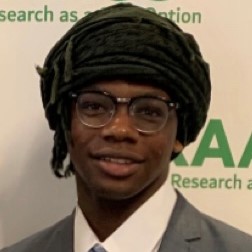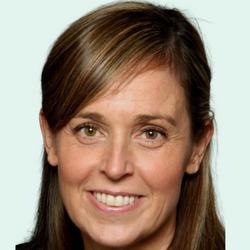Under-representation of diverse groups in the clinical research workforce contributes to the under-representation of diverse clinical trial participants. People, including clinical trial participants, want to see themselves reflected in their day-to-day healthcare providers as well as in the study principal investigators and site staff who conduct any trials in which they enroll.
Couple this with the shortage of clinical research professionals to meet the demands of an ever-increasing volume of clinical trials, and both the sponsors of trials and the employers of the workforce necessary to manage them find themselves in a challenging situation—some might call it a crisis.
A shortage of talented, skilled, and diverse personnel to conduct medical research could delay trials and thus hinder innovation, so many stakeholders are feeling the need to act with urgency.
To grow and diversify the clinical research workforce, Merck (known outside the U.S. and Canada as MSD) recently offered a group of students an Early Talent Training Program (ETTP) designed by the Association of Clinical Research Professionals (ACRP). The aim of the program is to introduce students in high school and community college settings to the clinical research profession, offering a core research curriculum necessary to establish the knowledge base needed to enter the profession at an entry level.
Discussing this program in the following Q&A are Merck’s Kelly Clark, Head of U.S. Partnerships and Global Site Development, and Darius D. Fullenwinder, a student at the Tri-County Technical College in South Carolina who is on a pre-medical track for attending medical school at Clemson and who participated in the ETTP experience through Merck.
Q: Kelly, how did you first become involved with overseeing the ETTP for Merck, and how widespread are its participating students to date?
A: In early 2022, our company sent a call to its employees to submit grant proposals to address a health issue in their community. The fund empowers local teams to help improve health outcomes by removing barriers to care and/or by strengthening health systems to deliver high-quality and compliant healthcare.
Our team, led by Jennifer Sheller, Head of Monitoring Excellence, Trial Diversity, and Site Engagement/Development at Merck, submitted a proposal to address the need to grow a diversified clinical research workforce, recognizing that a diverse workforce influences the ability to enroll a diverse patient population. We were thrilled to learn our proposal was one of 15 accepted out of the many submitted. Our portion of the funding was used to offer students the opportunity to complete ACRP’s Early Talent Training Program (ETTP). The program is a great way to introduce students who may be unaware of the vast opportunities available to them in the clinical research profession. The ETTP explains the inner workings of the profession and provides the foundational knowledge needed to enter the profession ready for success. To date, 17 students from one cohort have completed the course while a second cohort is under way. We are discussing rolling out additional cohorts with select schools in areas surrounding clinical trial sites that serve diverse patient populations. Our company is also evaluating the program to determine what enhancements are needed to benefit future cohorts.
Q: And what are the factors behind the decision-making for where and to whom Merck reaches out with offers to hold ETTP trainings at a particular school or college?
A: We heard from sites that they were struggling to recruit and retain talent. As a result, sites were sometimes forced to decline new trials. So, we focused on community college and high schools with high proportions of diverse students proximal to clinical trial sites conducting our studies.
The goal was to introduce students to the clinical research profession—a profession largely unknown to the general public—and to provide them with a foundational knowledge of clinical research. In doing so, we hoped students would apply and potentially obtain an entry-level clinical research position at sites in their communities upon completion of the course. There are many entry-level clinical research positions at sites across the U.S. not requiring a four-year degree, yet many open positions go unfilled for long periods of time.
We realized the root cause was that many students simply didn’t know the career exists, nor do they have the requisite knowledge and/or skills to enter the profession with ease. With this program, and programs like it, we aim to fuel and diversify the clinical research workforce. Currently, there are more jobs than people to do the important work of bringing new medicines and vaccines to all people. Therefore, companies need to implement deliberate programs to address the shortage of skilled and diverse talent to conduct clinical trials.

Q: Darius, how did you first learn about the opportunity to participate in the ETTP? What did you already know about clinical research at the time, and what was there about the program that convinced you it would be of value to your education and career plans?
A: I first learned about the Early Talent Training Program through the science department at my college. I had received an e-mail from my biology professor, who was promoting this experience to us students at the time. I was interested and applied. At the time, I was unaware of clinical research—it was nonexistent to me. When I received more information on the ETTP and began to learn more about the basics of clinical research, I immediately knew that this was truly an experience from which I could apply what I learned to the field I want to pursue. My career interest lies in the neuropsychological field. I wish to become a neuropsychiatrist who will do research. Since neuroscience is such a new field, the opportunity to have some exposure to the foundations of clinical research was obviously one from which I could benefit.
Q: Based on your experiences with the ETTP and your interactions with Merck, what are your plans for learning and exploring career options going forward?
A: I plan to incorporate clinical research into my eventual career as a medical doctor and use the knowledge that I gain from it to save lives around the world. First, I will get my bachelor’s degree and then continue studying with the aim of earning an MD and specializing in the neuroscience field. Having this experience with Merck and ACRP really inspired me, not only by encouraging me and pushing more confidence in what I want to do for a living, but also by making me think about incorporating clinical research into what I can offer patients as a doctor—not as a side job or hobby, but as an everyday practice.
I live in a very small town in South Carolina where very few people know anything about clinical trials, or if they do, it’s mostly related to historical cases of unethical behaviors by researchers. I am honored to be a part of this program so that I may be an ambassador and, hopefully one day, demystify clinical trials and build greater trust in the community around clinical trial participation.
Q: For both of you, what has been your personal biggest surprise or “lesson learned” from your involvement with the ETTP?
Kelly: Once we were able to connect with the schools, I was surprised by the level of enthusiasm for what we were doing amongst educators. They were excited to offer this opportunity to their students. Like many students, the educators were largely unaware of the clinical research profession and the many opportunities and job roles that come with it. Despite this, these educators were keen to learn more and connect their students to a potential career. I am also grateful to have established new connections and professional relationships while rolling out the program. I would never have met Darius if not for this program, and it is my hope to stay in contact with him throughout his academic studies and career journey. Darius and the other students are my inspiration to keep the program going while continually improving it.
Darius: The biggest surprise that I had from the ETTP was how the lectures emphasized patient safety and the number of guidelines and regulations that ensure the safety of the patient. There is so much history to clinical research. The field has come a long way, and it is continuing to spread awareness to those who do not know about it and gathering more active participants from underrepresented demographics within the trials and the workforce. I am so glad that I got to be a part of this program, and I think this is truly an opportunity for those who share goals that are similar to mine.
Q: Also for both of you, what do you see as likely being the biggest payoffs, or benefits to the public, from programs like the ETTP being offered to persons from underrepresented groups at an age when they have so many career and education options to consider?
Kelly: The biggest payoff is providing greater opportunity to future talent. There are many doors into the clinical research profession, yet many students are unaware those doors exist—or if they do know, they are not sure how to pass the threshold. Our role is to ensure that a pathway to the profession is made available to all, and to make sure that anyone can both enter and flourish as they follow it.
Darius: The biggest benefit that unrepresented groups gain from a program like the ETTP comes from being exposed to something that they may not have been aware of, but it aligns with what they want to do in life. When you look at what a program such as the ETTP offers, it exposes you to the foundations of clinical research, but also the core of what all clinical professionals want, and that’s to enhance health and reduce the burdens of illnesses and disabilities. Additionally, it benefits the public—even those members of it who are reluctant to participate due to previous historical events that have affected underrepresented groups—and opens up a door to redemption for the field and a path to improvement across the board.
Editor: Gary Cramer



